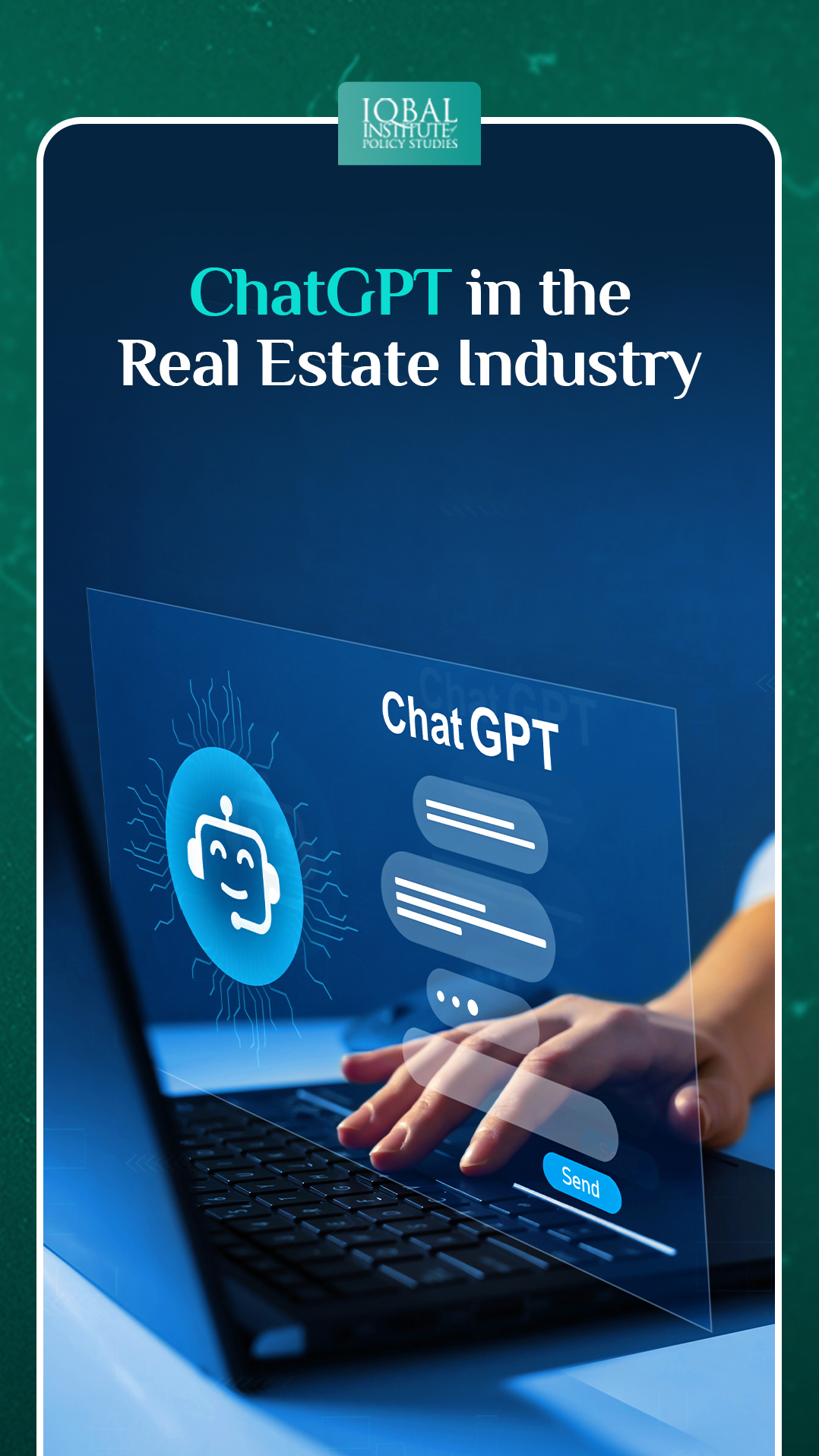Artificial intelligence (AI) is significantly changing various industries worldwide. While the real estate industry has historically been slow to adopt new technologies, AI’s offerings are causing a stir. One such offering is ChatGPT, a new buzzword which is taking the internet by storm. It is a long-form question-answering AI that answers complex questions conversationally. It is a game-changing technology because it has been trained to learn what humans mean when they ask questions. Many users are impressed by its ability to provide human-quality responses, raising the possibility that it could one day disrupt how humans interact with computers and change how information is retrieved. This tool will certainly make a lot of traditional machine learning (ML) obsolete. In addition to that, real estate industries have realised that AI chatbots provide solutions and offer long-desired options. Thus, the time is not far when the real estate industry will also come under the influence of this far-reaching technology as well.
What is ChatGPT?
ChatGPT is the new and improved version of the classic chatbot. It is a large language model chatbot that has gained a lot of public attention for its human-like, detailed responses to inquiries. For example, drafting a contract between an artist and a producer and creating detailed code. This technology could transform how people use search engines by solving complex problems and answering complex questions rather than simply providing links for users to sift through.
Benefits of ChatGPT in the Real Estate Industry
Calculate Real estate Metrics
Calculating real estate metrics such as mortgage payment, return on investment, cash on cash return etc., can be time-consuming and monotonous. However, with ChatGPT, real estate metrics can be calculated in an instant. It automates real estate calculations and generates its codes automatically. This can save the time of real estate investors and agents by making the buying and selling process efficient.
Enhances Customer Experience
ChatGPT can take information from a knowledge base and then answer questions about it. Customer service AI/ML learns and approves based on a company’s existing knowledge base. The ability of ChatGPT to connect with existing information is a huge benefit to the customer experience. Moreover, chatGPT is great at analysing customer interactions and finding errors in an agent’s responses.
Makes Existing Automation Outsourcers Smarter
There is a lucrative opportunity for real estate vendors to use ChatGPT to improve a business’s customer experience. For example, this technological tool can give real estate agents advice on how to negotiate a deal. With the company’s trained data scientists and conversational designers at the helm, real estate companies could give their partners and customers the benefit of ChatGPT without the risk of using it as a stand-alone solution.
Automate Property Management Tasks
ChatGPT can be used to automate a wide range of property management tasks, including rent collection, maintenance requests, and tenant communications. This can save time and reduce the need for human labour, potentially improving ROI through lower operating costs and increased efficiency.
Analysis and Predictions
ChatGPT is capable of analysing large amounts of data and forecasting market trends and tenant behaviour. This can assist investors in making more informed decisions about where to invest and how to manage their properties, potentially by identifying growth opportunities and minimising risk.
Provides Security
Multifamily properties can be made safer and more secure by using ChatGPT to monitor security cameras and quickly identify potential threats. This may increase ROI by lowering insurance costs and assisting in the protection of investments.
Aids in Tenant Screening
ChatGPT and other artificial intelligence (AI) technologies can be used to analyse tenant applications and other data in order to identify the most qualified and dependable tenants. This can lower the possibility of defaults and evictions, enhancing properties’ general performance.
Drawbacks/Limitations of ChatGPT
Scammers can Mislead ChatGPT
Scammers are as smart as ChatGPT. It has been programmed to execute the customer’s commands rather than the company’s commands. This exposes the tool to outside manipulation at a high cost to the company. Customers can trick ChatGPT into giving them what they want, including refunds and store credit. At scale, this unchecked vulnerability will not only put the company’s finances in jeopardy but will also damage the trust that has been built between the brand and its existing customer base.
Lacks Access to the internet
ChatGPT lacks internet access, limiting its knowledge of current events. It is occasionally a victim of its success, as its website occasionally crashes due to high demand. Moreover, the bot is pedantic, and changing a word or a phrase in a request can lead to different results.
Programming Limitations
ChatGPT has its limitations, including a knowledge base that ends in 2021, a tendency to produce incorrect answers, constantly using the same phrases, and when given one version of a question, the bot claims it cannot answer it, but when given a slightly tweaked version, it answers it just fine.
Can ChatGPT Replace a Real Estate Agent?
ChatGPT is not a replacement for agents. It can assist agents in performing their duties more effectively, but it cannot completely replace them. This tool in the real estate industry can help real estate agents with tasks like scheduling appointments and ensuring their clients are satisfied before closing the deal. The technology is also adept at locating properties that meet customers’ criteria and engagingly presenting them while informing the client of any relevant updates along the way. For example, if there has been any new information about nearby homes for sale or coming soon, that may also be of interest to the client. However, this technology has its limitations and lacks the human essence. ChatGPT has no frame or structure to make it an efficient replacement for human agents. Thus, it cannot replace the role of a real estate agent completely.
Conclusion
Artificial intelligence and machine learning have progressed significantly over time, resulting in the most recent and advanced application of conversational AI in the form of chatGPT. This technological tool revolutionises multiple industries and may also influence the real estate industry. Real estate companies can utilise the lucrative opportunities offered by this tool to enhance their business and attract a tech-savvy population to extend their pool of clients. For the time being, because the software is still in its infancy, there is a divide between people who use it casually. However, ChatGPT’s potential uses will soon fully come to light and might change the dynamics of the real estate industry.



Leave a Reply